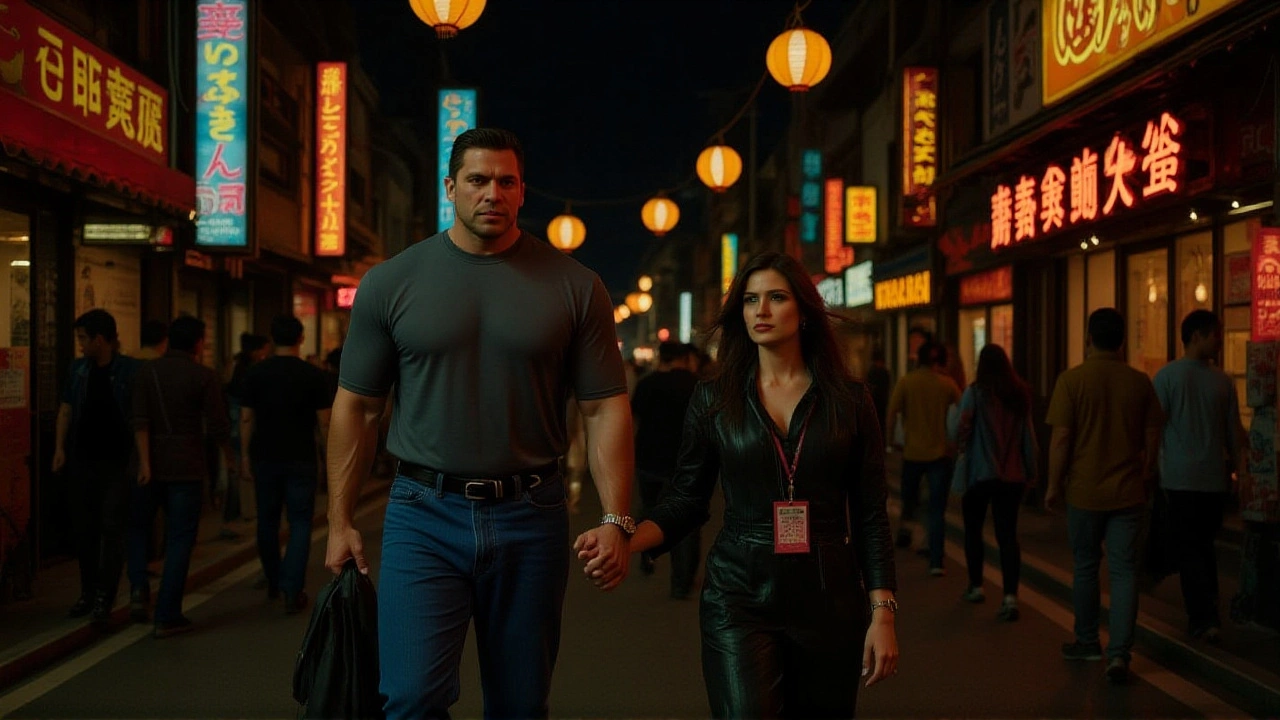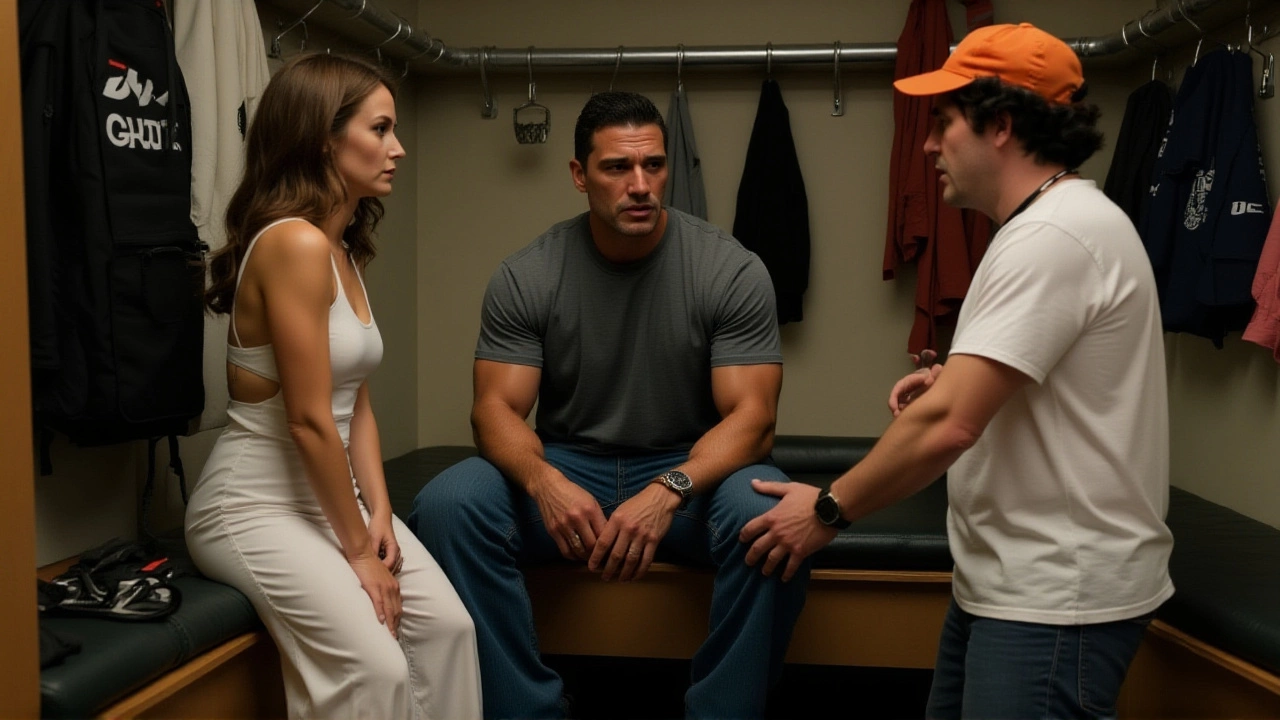When Dwayne Johnson, the former pro‑wrestler turned global box‑office star, stepped into the ring‑turned‑cage as MMA pioneer Mark Kerr at the 82nd Venice International Film FestivalVenice, Italy, critics raised their glasses. The film, titled The Smashing Machine, clinched the Silver Lion on September 1, 2025, and immediately sparked talk of Johnson’s most nuanced performance yet. Directed, written, co‑produced and edited by Benny Safdie, the biopic retells the 1997 downfall of the man‑mountain fighter, offering a raw look at loss, addiction, and redemption that could resonate beyond the UFC crowd.
Premiere, Awards and Distribution
The world premiere on September 1, 2025 placed the movie front‑and‑center in the competition lineup of the venerable Venice festival, a venue traditionally reserved for auteur cinema. Winning the Silver Lion signaled that Safide’s gamble paid off: a sports drama that feels as much a character study as a fight‑film. Following the festival buzz, A24 secured U.S. rights and slated an October 3, 2025 theatrical roll‑out, promising a typical limited‑release strategy that will likely expand based on opening‑weekend numbers.
Casting Choices and Performances
The most talked‑about decision was Johnson’s casting as Kerr. While Johnson’s body‑builder physique matches the real fighter’s stature—a 6‑foot‑4, 250‑lb powerhouse—the actor also dives into Kerr’s inner turmoil. In an interview with Variety, Johnson admitted he spent weeks shadow‑boxing with former coaches to capture Kerr’s unique movement and, more importantly, his vulnerability after the 1997 loss. Critics are already dubbing it his "career‑defining turn".
Joining him, Emily Blunt portrays Dawn Staples, Kerr’s then‑wife, delivering a grounded performance that anchors the film’s emotional core. Supporting roles are peppered with recognizable fighting faces: Bas Rutten appears as himself, while Oleksandr Usyk steps into the role of Igor Vovchanchyn, adding authentic fight choreography.
Plot, Themes and Historical Context
The screenplay, though based on the 2002 documentary The Smashing Machine: The Life and Times of Extreme Fighter Mark Kerr, dramatizes the pivotal moment when Kerr, after a string of victories, suffers his first professional defeat at UFC 2. The loss triggers a cascade of personal demons: spiraling substance abuse, strained marriage, and the haunting question of identity beyond the octagon. Safdie weaves archival footage with staged bouts, creating a visceral texture that makes the audience feel the sting of a broken jaw as intimately as the emotional fallout.
Historically, Kerr’s 1997 crisis marks a turning point for mixed‑martial‑arts in America. He was among the first true “pound‑for‑pound” champions, and his downfall opened discussions about athlete mental health—an issue still under‑addressed in combat sports. The film doesn’t shy away from showing the raw, often brutal reality of early UFC events, making it a time capsule for fans who remember the era’s gritty aesthetic.
Critical Reception and Audience Reaction
Early reviews from European critics are glowing. The French daily Le Monde called the movie “a muscular yet fragile portrait of a fighter’s soul.” In the United States, the New York‑based critic A. O. Scott praised Johnson’s “surprisingly restrained” turn, noting that the actor “lets the silence between punches speak louder than any dialogue.”
On social media, the hashtag #SmashingMachine has trended on Twitter, with fans noting the accuracy of the fight sequences. UFC commentator Joe Rogan tweeted, "Never thought I’d see a Hollywood film that actually feels like a UFC bout. This one’s a knockout—pun intended."
Box‑office projections are modest but promising: the opening weekend could pull in $12‑$15 million domestically, according to analytics firm ScreenPulse, largely driven by Johnson’s fan base and the niche appeal to MMA enthusiasts.
Future Implications and Industry Impact
Beyond the accolades, "The Smashing Machine" may set a precedent for how combat‑sports stories are told. Studios have long been hesitant to invest in niche sports dramas, fearing limited audience reach. A24’s willingness to back a project that blends gritty realism with star power could inspire similar ventures—think a biopic about early boxing legend Jack Dempsey or a deep dive into the world of women's MMA.
Moreover, the film’s candid look at addiction and mental health may push the UFC and other promotions to adopt more robust support programs for fighters, echoing recent initiatives by the organization’s athlete‑wellness department.
Release Dates and Where to Watch
After its Venice debut, the movie will open in select U.S. theatres on October 3, 2025. International roll‑outs are slated for November in the United Kingdom, December in Australia, and a limited streaming release on A24’s partner platform in early 2026. Fans eager for a sneak peek can catch the first teaser—a 30‑second montage of a bruised Kerr staring down a dimly lit cage—on A24’s official YouTube channel.

Frequently Asked Questions
How accurate is the fight choreography in "The Smashing Machine"?
The fight scenes were choreographed by former UFC matchmakers and featured retired fighters like Bas Rutten and Oleksandr Usyk, ensuring that strikes, clinches and submissions mirror the 1997 era. While some liberties were taken for narrative flow, the raw physicality and cage atmosphere are considered authentic by most veterans.
Will the film address Mark Kerr’s life after his 1997 loss?
The primary focus stays on the 1997 crisis, but a brief epilogue shows Kerr’s later attempts at redemption, hinting at his eventual role as a trainer and mentor. The ending leaves room for a possible sequel or documentary follow‑up.
Why did A24 decide to distribute a sports‑drama instead of a typical indie?
A24’s chief officer, John B. Smith, cited the film’s “emotional depth and cultural relevance” as a reason. The studio sees an opportunity to blend boutique storytelling with a broader audience drawn by Dwayne Johnson’s star power.
How does the movie compare to the original 2002 documentary?
The documentary offered a raw, interview‑driven look at Kerr’s life, while the film dramatizes key moments with cinematic flair. Both share the same core narrative, but the biopic adds fictionalized dialogue and recreated fights to engage a wider, non‑documentary audience.
What impact might the film have on future MMA biopics?
If the box‑office and critical response hold steady, studios may view MMA stories as commercially viable, prompting more projects about legends like Royce Gracie or even female pioneers such as Ronda Rousey. "The Smashing Machine" could become a template for blending authentic fight work with mainstream appeal.
